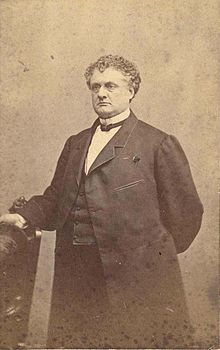 |
| Governor John Andrew of Massachusetts |
BOSTON, MASS.,
May 8, 1863-11 a.m.
Honorable E. M. STANTON,
Secretary of War;
Thanks for your telegram. May I ask if storm and rise of Rappahannock determined Hooker's recrossing?
JOHN A. ANDREW,
Governor.
WASHINGTON, D. C.,
May 8, 1863.
Governor ANDREW,
Boston, Mass.:
When General Hooker's official report is made it will no doubt answer all inquiries. The two causes mentioned were proximate and sufficient. What influences, if any, were exercised by other causes, I am unable to state. It is certain that he was not driven across by the enemy, or for want of force. Information has been received of the safe return of Stoneman's command.
EDWIN M. STANTON.
WAR DEPARTMENT.
Series I., Vol. 25, Part 2, Page 451.
There were three inches of rainfall from May 5-7, which Andrew alludes to. It no doubt made Hooker's task more difficult, but it was not by any means the reason for his retiring over the river. The condition of the Army of the Potomac was such it could not immediately resume operations and it would not have been prudent to remain, back to the river, with an aggressive opponent like Lee in his front. Hooker's loss in killed, wounded, and missing was over 17,000 (or about 1/8th of his total force). Confederate casualties were proportionately heavier, 13,000 of 60,000 engaged (more than 1/5th the total).
No comments:
Post a Comment